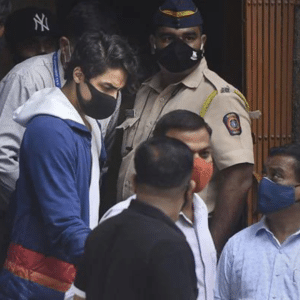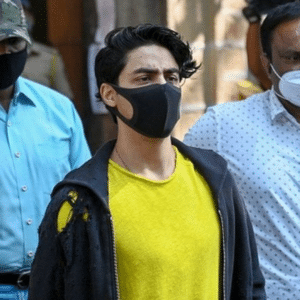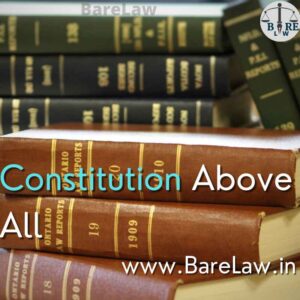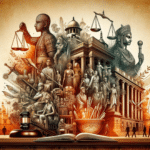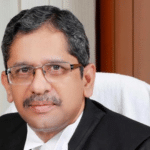
LEGAL AID
Legal Aid implies giving legal guidance, paying attorneys expenses and cost of litigation including giving some other help to the individuals who experience financial insolvency, dejection, are defenseless, or can’t get to justice due to different financial conditions. The idea of “legal aid” indicates wide importance and incorporates directing an installment of legal counselor’s charges, and another coincidental expense for costs of the litigation. The free legal useful resource is a vital power granted via Constitution as many human beings in India settle for injustice due to the fact, they cannot have the funds for an advocate to shield them.
HISTORICAL BACKGROUND
The earliest Legal Aid development seems, by all accounts, to be of the year 1851 when some authorization was presented in France for giving legal help to the penniless. In Britain, the historical backdrop of the coordinated endeavors with respect to the State to offer legal types of assistance to poor people and penniless traces all the way back to 1944, when Lord Chancellor, Viscount Simon delegated the Rushcliffe Committee to enquire about the offices existing in England and Wales for offering legal guidance to poor people and to cause suggestions as appear to be attractive for guaranteeing that people needing legal exhortation are given something similar by the State. Starting around 1952, the Govt. of India additionally began addressing the topic of legal aid for the poor in different meetings of Law Ministers and Law Commissions. In 1960, a few guidelines were drawn by the Govt. for legal aid schemes. In various states, legal aid schemes were skimmed through Legal Aid Boards, Societies, and Law Departments. In 1980, a Committee at the public level was established to regulate and direct legal aid programs all through the country under the Chairmanship of Hon. Mr. Justice P.N. Bhagwati was then a Judge of the Supreme Court of India. This Committee came to be known as CILAS (Committee for Implementing Legal Aid Schemes) and began checking legal aid exercises all through the country. The presentation of Lok Adalats added another section to the equity administration arrangement of this country and prevailed with regards to giving a valuable discussion to the defendants for mollifying settlement of their questions. In 1987 Legal Services Authorities Act was established to give a legal base to legal aid programs all through the country on a uniform example. This Act was at long last authorized on the ninth of November, 1995 after specific changes were presented in that by the Amendment Act of 1994. Hon. Mr. Justice R.N. Mishra the then Chief Justice of India assumed a vital part in the implementation of the Act.
PROVISIONS UNDER INDIAN CONSTITUTION
Article 39A of the Constitution of India provides that State shall secure that the operation of the legal system promotes justice on a basis of equal opportunity, and shall, in particular, provide free legal aid, by suitable legislation or schemes or in any other way, to ensure that opportunities for securing justice are not denied to any citizen by reason of economic or other disability.
Articles 14 and 22(1) also make it obligatory for the State to ensure equality before the law and a legal system that promotes justice on a basis of equal opportunity to all. Legal aid strives to ensure that the constitutional pledge is fulfilled in its letter and spirit and equal justice is made available to the poor, downtrodden, and weaker sections of society.
LEGAL SERVICES DAY
Providing free legal services in an effort to limit the pendency load (backlog) of Indian courts just as to bear the cost of admittance to justice for penniless disputants. To honor the event, the day of sanctioning was first celebrated in 1995 as National Legal Services Day.
The ninth of November is chosen as the Legal Services Day which was initially begun by the Supreme Court in the year 1995 the whole way across India to offer assistance and backing to the more vulnerable and helpless gathering of segments of individuals which might be women, crippled people, Scheduled Tribes, kids, Scheduled Castes, illegal exploitation casualties, etc.
Legal Services gives Legal Aid to those more fragile segments of the general public who fall inside the domain of Section 12 of the Legal Services Authority Act, 1987. It additionally involves making legal mindfulness by spreading legal education through legal mindfulness camps, print media, computerized media, and putting together Lok Adalats for the genial settlement of debates which are either forthcoming or which are yet to be documented, via compromise The point of praising the Legal Services Day is to offer them for nothing, capable and legal services to individuals of more fragile segments of society. It likewise arranges the Lok Adalats to make safe the legal situation activities and empowers the exemplary nature of individuals on the correspondence premise. Different authorities go to the locale of Nagaland to play out the approved aid projects and missions identified with the legal mindfulness. The day festivity is coordinated all over India to build consciousness of free legal aid towards each feeble resident of the country. It intends to ensure the accessibility of free services to the more fragile segment of individuals just as making them cognizant with regards to their privileges.
AUTHORITIES PROVIDING FREE LEGAL SERVICES IN INDIA
NALSA has been comprised under the Legal Services Authorities Act, 1987, to offer free lawful types of assistance to more vulnerable areas of society.
The point is to guarantee that chances for getting equity are not denied to any resident by reasons of financial disabled. NALSA assembles Lok Adalats for agreeable settlement of questions, recognizes explicit classes of the minimized and barred parties, and forms different plans for the execution of preventive and key lawful assistance programs. It gives free legitimate guides in common and criminal matters for poor people and underestimates individuals who can’t bear the cost of the services of an attorney in any court or council.
In each State, State Legal Services Authority has been comprised to give impact to the approaches and headings of the NALSA and to give free lawful services to individuals and lead Lok Adalats in the State. The State Legal Services Authority is headed by Hon’ble the Chief Justice of the particular High Court who is the Patron-in-Chief of the State Legal Services Authority.
In each District, District Legal Services Authority has been established to carry out Legal Services Programs in the District. The District Legal Services Authority is arranged in the District Courts Complex in each District and chaired by the District Judge of the particular area. These specialists guarantee that chances for getting equity are not denied to any resident by reason of monetary or different incapacities and to arrange Lok Adalats to get that the activity of the overall set of laws advances equity on a premise equivalent freedom.
You may also like to read:
-
02 Oct 2021 Case BriefsCase Brief on Rupa Ashok Hurra v. Ashok Hurra Writ petition (civil) 509 of 1997
-
06 Oct 2021 Legal AffairsAryan Khan’s Narcotics case – Legality
-
07 Oct 2021 Legal AffairsNDPA case against Aryan Khan
-
12 Sep 2021 Know Your LawConstitution above all
-
12 Sep 2021 The Constitution of IndiaFundamental Rights: Right to Constitutional Remedies

